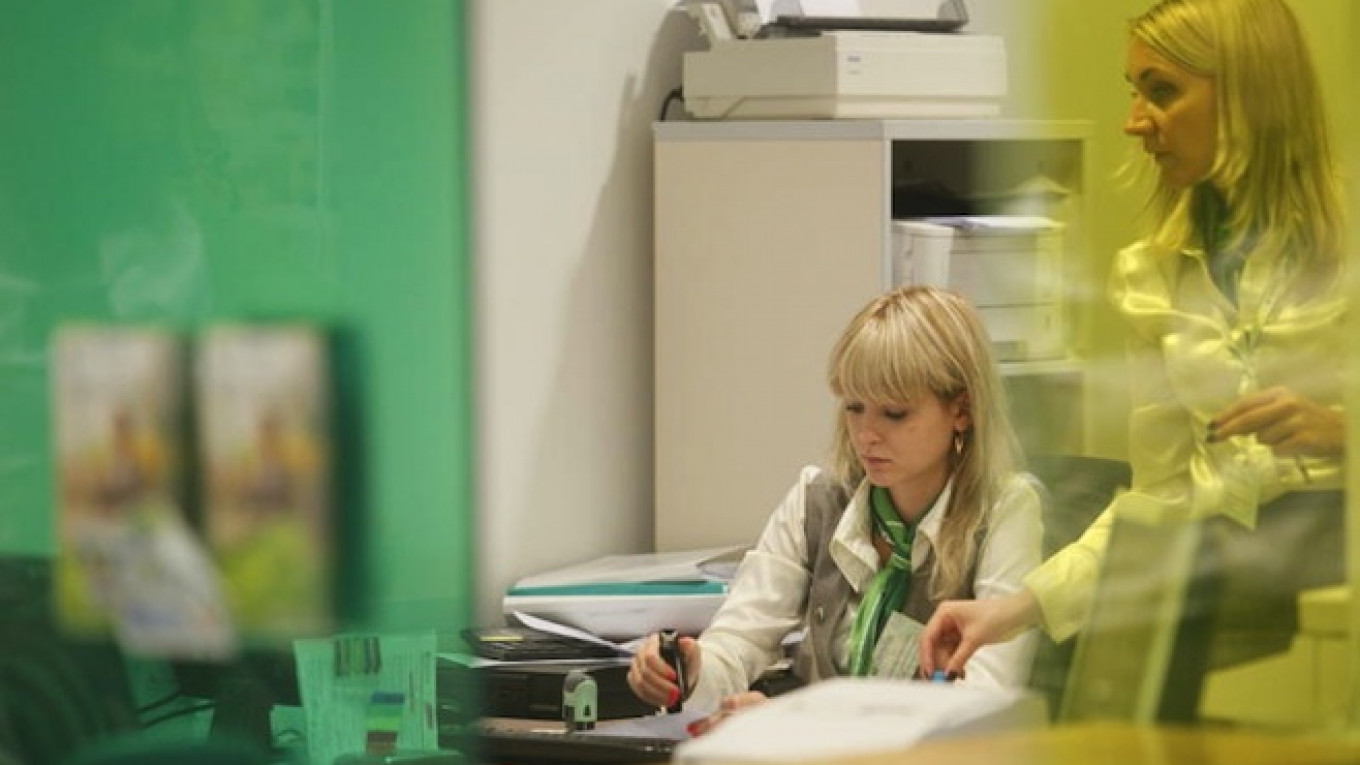Russian state companies, the backbone of the economy, can only have accounts at banks with capital of no less than 10 billion rubles ($296 million) or at those with ties to the government, a senior finance ministry official said Thursday.
The move, under discussion since June, is aimed at protecting some of Russia's largest companies from an economic downturn, worsened by Western sanctions over Ukraine, and to protect depositors in the case banks lose their licenses.
Earlier, Russia's Central Bank had been discussing a requirement that state companies would only be allowed to have accounts at banks with capital of over 16.5 billion rubles ($480 million).
But Deputy Finance Minister Alexei Moiseev told Reuters that the central bank and the Finance Ministry had now agreed that state companies will be allowed to have accounts at banks with capital of a lower amount — no less than 10 billion rubles.
"Banks must meet one of three criteria — their capital must be no less than 10 billion rubles, or the bank is directly or indirectly controlled by the state, or there is a special situation where the government can put a bank on the list at the request of a strategic company," said Moiseev.
This encapsulates a larger network of banks — some 100 banks versus around 50 banks that would have met the previous requirements.
The companies, including some of the country's largest energy, gas, banking and transport companies such as Rosneft, Gazprom and Aeroflot, should also hold accounts at banks directly or indirectly controlled by the state, Moiseev said.
Russia's largest banks are the state-controlled Sberbank and VTB.
The central bank has been on a campaign to clean up the banking system and crack down on money laundering.
Russia has just under 900 banks, mostly small, and many are suspected of servicing the shadow economy. Since taking up her position as central bank head last year, Elvira Nabiullina, has made it clear she wants to tighten banking supervision and shore up large-scale capital flight to boost the flagging economy.
The government has also been considering banning state companies and other strategically important firms from holding accounts at foreign-owned banks, a source familiar with the proposals told Reuters last month.
Analysts doubted that the plan would be adopted, saying it would be highly damaging for Russia's investment climate and would face opposition from major companies.
See also:
Russian Capital Outflow in First Half of 2014 Exceeds Entire 2013
A Message from The Moscow Times:
Dear readers,
We are facing unprecedented challenges. Russia's Prosecutor General's Office has designated The Moscow Times as an "undesirable" organization, criminalizing our work and putting our staff at risk of prosecution. This follows our earlier unjust labeling as a "foreign agent."
These actions are direct attempts to silence independent journalism in Russia. The authorities claim our work "discredits the decisions of the Russian leadership." We see things differently: we strive to provide accurate, unbiased reporting on Russia.
We, the journalists of The Moscow Times, refuse to be silenced. But to continue our work, we need your help.
Your support, no matter how small, makes a world of difference. If you can, please support us monthly starting from just $2. It's quick to set up, and every contribution makes a significant impact.
By supporting The Moscow Times, you're defending open, independent journalism in the face of repression. Thank you for standing with us.
Remind me later.






